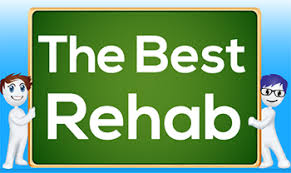Here’s a link to a NYT article that touches on a particularly distressing issue. I have often felt disgusted that drug rehab and treatment centers rely on misleading advertising (fake news?) to make huge profits off desperate people. And then send them back to an isolated existence without the tools they need to maintain some kind of control. If you read the article, which I encourage you to do, you’ll see that “Treatment providers,  in some cases, have been willing to pay $70 per ad click.” Do you realize how much money they’re making off ads in order to justify that kind of payout?
in some cases, have been willing to pay $70 per ad click.” Do you realize how much money they’re making off ads in order to justify that kind of payout?
Although most addicts quit without formal treatment, (sometimes called natural recovery) it’s clear that some people do need professional help. And it’s not news (for people in our community) that most drug/alcohol  rehabs are disasters: charging exorbitant fees for putting the “Disease” marquee above their front door, along with a picture of a white-coated doctor smiling down from their website, yet shuffling people off to 12-step meetings as their primary treatment modality.
rehabs are disasters: charging exorbitant fees for putting the “Disease” marquee above their front door, along with a picture of a white-coated doctor smiling down from their website, yet shuffling people off to 12-step meetings as their primary treatment modality.
There is so much that goes wrong in conventional rehabs: the inappropriate dosing or refusal to provide opiate substitution for those in need, the lack of individual therapy with an  experienced therapist, the use of shaming and other coercive techniques, the abysmal lack of clear guidelines for aftercare, and the fake news claiming that 12-
experienced therapist, the use of shaming and other coercive techniques, the abysmal lack of clear guidelines for aftercare, and the fake news claiming that 12- step techniques (and group “discussions”) somehow count as evidence-based treatment. Not to mention the almost total absence of unbiased program evaluation.
step techniques (and group “discussions”) somehow count as evidence-based treatment. Not to mention the almost total absence of unbiased program evaluation.
I won’t go on. Maia Szalavitz has written volumes (e.g., here) on these abuses, and Anne Fletcher’s book, Inside Rehab, also exposes much that’s gone wrong. I just caught this story today thanks to my cousin Karen (thanks, Karen!) and I’m pleased to share some good news: the profit-driven quackery dressed up as the solution to addiction in America (and elsewhere) is finally being spotted — and nailed — by healthcare advocates, legal specialists, journalists and media decision-makers. And that’s a pretty good start.
Here’s an excerpt from the article:
Google Sets Limits on Addiction Treatment Ads, Citing Safety
By MICHAEL CORKERYSeptember 14, 2017
As drug addiction soars in the United States, a booming business of rehab centers has sprung up to treat the problem. And when drug addicts and their families search for help, they often turn to Google.
But prosecutors and health advocates have warned that many online searches are leading addicts to click on ads for rehab centers that are unfit to help them or, in some cases, endangering their lives.
This week, Google acknowledged the problem — and started restricting ads that come up when someone searches for addiction treatment on its site. “We found a number of misleading experiences among rehabilitation treatment centers that led to our decision,” Google spokeswoman Elisa Greene said in a statement on Thursday.
Google has taken similar steps to restrict advertisements only a few times before. Last year it limited ads for payday lenders, and in the past it created a verification system for locksmiths to prevent fraud.
……In this case, the restrictions will limit a popular marketing tool in the $35 billion addiction treatment business, affecting thousands of small-time operators.
“This is a bold move by one of the world’s biggest companies, saying people’s lives are more important than profit,” said Greg Williams, co-founder of Facing Addiction, a nonprofit group that is an advocate for people struggling with addiction.

Leave a Reply